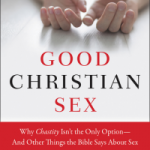 This week I am happy to host Keisha McKenzie as part of my Liberating Liturgies series. In this two part guest post, which I will be publishing over the next couple of days. These posts were originally published at the Journey Fellowship website, and at McKenzie’s own blog. If you’re interested in writing your own Liberating Liturgy, check out this post with some instructions, read some examples, and email me at moonsn11@gmail.com. In the mean time, enjoy today’s guest post, and check back in the next couple of days for part 2! Keisha E. McKenzie worships with Adventists and Quakers, works with individuals and non-profits in the DC-MD metro area, and posts new writing on her website, mackenzian.com. Reach out to her on Twitter at @mackenzian.
This week I am happy to host Keisha McKenzie as part of my Liberating Liturgies series. In this two part guest post, which I will be publishing over the next couple of days. These posts were originally published at the Journey Fellowship website, and at McKenzie’s own blog. If you’re interested in writing your own Liberating Liturgy, check out this post with some instructions, read some examples, and email me at moonsn11@gmail.com. In the mean time, enjoy today’s guest post, and check back in the next couple of days for part 2! Keisha E. McKenzie worships with Adventists and Quakers, works with individuals and non-profits in the DC-MD metro area, and posts new writing on her website, mackenzian.com. Reach out to her on Twitter at @mackenzian.
_____
From Vows to Action, Part I: The Agreements We Make
Is it possible to geek out over church liturgy? It is, and I did it [awhile] ago. Early [last] June, I came across this vow from the baptismal covenant reading in the Book of Common Prayer:
I loved it, and not just because of what it said but also because it was so unlike any of the vows I was invited to assent to when I was baptized.
Vowing Adherence the Seventh-day Adventist Way
Although I was raised participating in a Seventh-day Adventist congregation, I joined the denomination officially when I was 13 years old, after 9 months of weekly home study with my church’s senior minister. During this study process, I incrementally read and reported to the minister on a thin white book that outlined the church’s then-27 fundamental beliefs. The outlines included biblical references and paragraph explanations, and paired the explanations with quotes from church founder Ellen G. White and from the SDA Bible commentary. At the back of the book, and read back to us in an “examination” on baptism day, was the following list of 13 vows:
- Do you believe in God the Father, in His Son Jesus Christ, and in the Holy Spirit?
- Do you accept the death of Jesus Christ on Calvary as the atoning sacrifice for the sins of men, and believe that through faith in His shed blood men are saved from sin and its penalty?
- Renouncing the world and its sinful ways, have you accepted Jesus Christ as your personal Saviour, and do you believe that God, for Christ’s sake, has forgiven your sins and given you a new heart?
- Do you accept by faith the righteousness of Christ, recognizing Him as your Intercessor in the heavenly sanctuary, and do you claim His promise to strengthen you by His indwelling Spirit, so that you may receive power to do His will?
- Do you believe that the Bible is God’s inspired word, and that it constitutes the only rule of faith and practice for the Christian?
- Do you accept the Ten Commandments as still binding upon Christians; and is it your purpose, by the power of the indwelling Christ, to keep this law, including the fourth commandment, which requires the observance of the seventh day of the week as the Sabbath of the Lord?
- Is the soon coming of Jesus the blessed hope in your heart, and are you determined to be personally ready to meet the Lord, and to do all in your power to witness to His loving salvation, and by life and word to help others to be ready for His glorious appearing?
- Do you accept the Biblical teaching of spiritual gifts, and do you believe that the gift of prophecy in the remnant church is one of the identifying marks of that church?
- Do you believe in God’s Remnant Church, and is it your purpose to support the church by your tithes and offerings, your personal effort, and influence?
- Do you believe that your body is the temple of the Holy Spirit and that you are to honor God by caring for your body, avoiding the use of that which is harmful, abstaining from all unclean foods, from the use, manufacture, or sale of alcoholic beverages, the use, manufacture, or sale of tobacco in any of its forms for human consumption, and from the misuse of, or trafficking in, narcotics or other drugs?
- Knowing and understanding the fundamental Bible principles as taught by the Seventh-day Adventist Church, is it your purpose, by the grace of God, to order your life in harmony with these principles?
- Do you accept the New Testament teaching of baptism by immersion, and do you desire to be so baptized as a public expression of your faith in Christ and in the forgiveness of your sins?
- Do you believe that the Seventh-day Adventist Church is the remnant church of Bible prophecy, Rev. 12:17, and that people of every nation, race, and language are invited and accepted into its fellowship? Do you desire membership into this church?
Understand that the only “institutionally correct” answer to these thirteen questions is “yes”! But I haven’t heard the full list used at baptisms for several years now. The congregations I’ve worshiped with seem to prefer a shorter version that focuses less on consensus dogma and more on individuals’ belief in Jesus and intent to support the church.
Glimpsing a World Beyond the Walls
 When I looked up the other covenantal vows in the Book of Common Prayer (BCP), I found that they include consensus dogma about God, Jesus, the Holy Spirit, sin, evangelism, and church life like the dogma in the Adventist list. The BCP vow on striving for justice and peace is one of two that shifts the focus of the celebrant beyond the walls of the church or frames other people as more than potential church members: the other vow invites the celebrant to “seek and serve Christ in all persons, loving your neighbor as yourself.” Not one of the Adventist church’s 13 vows challenges baptismal candidates to do this.
When I looked up the other covenantal vows in the Book of Common Prayer (BCP), I found that they include consensus dogma about God, Jesus, the Holy Spirit, sin, evangelism, and church life like the dogma in the Adventist list. The BCP vow on striving for justice and peace is one of two that shifts the focus of the celebrant beyond the walls of the church or frames other people as more than potential church members: the other vow invites the celebrant to “seek and serve Christ in all persons, loving your neighbor as yourself.” Not one of the Adventist church’s 13 vows challenges baptismal candidates to do this.
“In my opinion the church is far more enamored with knowing doctrines than with knowing Jesus. The church therefore uses this approach in its ‘evangelism’—if it can get people to assent to 28 creedal statements, they’re ready for baptism and membership.” —Ken McFarland
These new-member covenants are ubiquitous across Christendom, so they clearly serve a purpose; McFarland describes them as a creed-support tool; I’ve described them above as a gate-keeping device. For me, this is not a slur: organizations legitimately use entry initiations to monitor their membership. I only wonder if the vows could become more than that.
What if the Seventh-day Adventist church’s baptismal vows weren’t designed to secure belief compliance or encourage members’ avoidance of certain behaviors? What if they were about more than doctrinal boundary-setting, if they went beyond intellectual constructs by offering candidates a new frame for life? What if they inspired new ways for us to act and live in the world? Could they be more relevant to believers 10, 20, 30, and 40 years post-baptism if they did?
Tell me in the comments: If you experienced adult baptism, did your ceremony include vows? If so, did those vows shape your spirituality? How?















